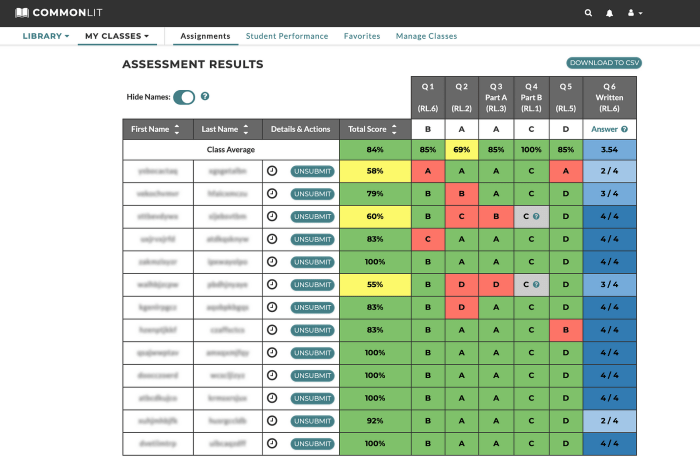Down with homework commonlit answers presents a compelling exploration into the contentious debate surrounding the necessity of homework. This comprehensive analysis delves into the arguments against homework, highlighting evidence that challenges its purported benefits while emphasizing its detrimental impact on students’ well-being.
Moreover, the benefits of eliminating homework are meticulously examined, showcasing studies that demonstrate its positive effects on student engagement, academic performance, and overall well-being. Alternative learning methods are also explored, providing innovative approaches to promote student understanding and retention.
Arguments Against Homework: Down With Homework Commonlit Answers

Opponents of homework argue that it is unnecessary and ineffective. They point to studies that have shown that homework does not improve academic performance and may even have negative consequences for students’ mental and physical health.
One study, published in the journal Educational Psychology Review, found that there is no clear evidence that homework improves student achievement. The study’s authors concluded that “the benefits of homework are small and inconsistent, and that the costs of homework are significant.”
Another study, published in the journal Pediatrics, found that homework is associated with increased levels of stress, anxiety, and depression in students. The study’s authors concluded that “homework may be doing more harm than good.”
Benefits of Eliminating Homework
There are a number of benefits to eliminating homework. One benefit is that it would free up students’ time to pursue other activities, such as spending time with family and friends, participating in extracurricular activities, or simply relaxing.
Another benefit of eliminating homework is that it would reduce students’ stress levels. A study published in the journal Educational Research Quarterlyfound that students who were assigned less homework reported lower levels of stress than students who were assigned more homework.
Finally, eliminating homework could improve students’ overall academic engagement. A study published in the journal Educational Psychologyfound that students who were assigned less homework were more likely to be engaged in their classes and to participate in extracurricular activities.
Alternative Learning Methods
There are a number of alternative learning methods that can replace traditional homework assignments. One alternative is project-based learning, which allows students to learn by completing projects that are relevant to their interests.
Another alternative is problem-based learning, which allows students to learn by solving real-world problems. Finally, cooperative learning allows students to learn by working together in groups.
These alternative learning methods can be more effective in promoting student understanding and retention than traditional homework assignments. They also allow students to learn at their own pace and in a way that is more engaging.
Educator Perspectives
There are a number of educators who support reducing or eliminating homework. One such educator is Alfie Kohn, an author and education consultant. Kohn argues that homework is unnecessary and harmful to students.
Another educator who supports reducing homework is Peter Gray, a research professor of psychology at Boston College. Gray argues that homework is a waste of time and that it can actually damage students’ learning.
These educators believe that there are better ways to promote student learning than by assigning homework. They argue that alternative learning methods, such as project-based learning and problem-based learning, are more effective and engaging for students.
Parent Involvement
Parents can play an important role in advocating for changes to homework policies. One way that parents can get involved is by talking to their children’s teachers about their concerns about homework.
Another way that parents can get involved is by working with other parents to form a group that advocates for changes to homework policies. These groups can work to raise awareness about the negative effects of homework and to promote alternative learning methods.
Finally, parents can support their children’s learning without relying on traditional homework assignments. One way that parents can do this is by reading to their children, talking to them about their interests, and helping them to find activities that they enjoy.
Case Studies and Examples, Down with homework commonlit answers
There are a number of schools and districts that have successfully implemented homework-free policies. One such school is the Sudbury Valley School in Framingham, Massachusetts. Sudbury Valley is a democratic school where students are free to choose what they want to learn and how they want to learn it.
Another school that has successfully implemented a homework-free policy is the High Tech High School in San Diego, California. High Tech High is a project-based learning school where students learn by completing projects that are relevant to their interests.
These schools have shown that it is possible to eliminate homework without sacrificing student achievement. In fact, these schools have found that students who are not assigned homework are more engaged in their learning and have higher academic achievement than students who are assigned homework.
Essential Questionnaire
What is the main argument against homework?
Homework is often unnecessary and does not improve academic performance, while negatively impacting students’ mental and physical health.
How can eliminating homework benefit students?
Eliminating homework can improve students’ overall well-being, academic engagement, and social and family lives.
What are some alternative learning methods to replace homework?
Alternative learning methods include project-based learning, peer teaching, and online simulations.




